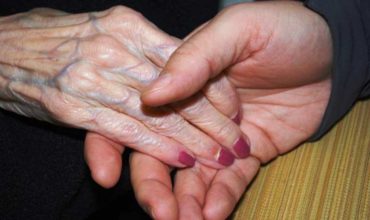It’s important to understand the legal and financial considerations of caring for an elder relative.
As Americans live increasingly longer lives, many require ongoing, long-term care. This care often falls to grown children — men and women who are in their forties, fifties, and sixties and busy with careers or perhaps children of their own. Getting caught in this care-giving “sandwich” — growing children on one side, aging parents on the other — can be an emotional and financial burden, especially if you don’t know where to begin or how to get help.
First, you’ll need to consider some legal and financial matters. To provide good care for an elder relative, it may be necessary to deal with care facilities, insurance, powers of attorney, and more.
Figuring Out What Needs to Be Done
Following is a checklist to help you determine what your relative may need. Don’t let it overwhelm you. Simply use it to make your own list of things to do or to learn more about, if necessary. Then you’ll be in a better position to ask others to help with both discrete and long-term tasks.
Type of Care Needed
To determine the types of care your relative may require, ask yourself these questions:
- What kind of care does my relative need now, and is that likely to change in the future?
- Could my relative be taken care of at home if he or she had some help from a skilled nurse and/or a health aide? (For more information, see Is Home Health Care an Option?)
- Would assisted living be appropriate for my relative? (For more information, see Assisted Living: Care With an Independent Flavor.)
- Will he or she require a skilled nursing facility, now or in the future? (For more information, see Choosing and Paying for a Long-Term Care Facility.)
- Does my relative’s mental condition require him or her to have special care and housing? (For more information, see Residential Care Facilities for Elders With Alzheimer’s Disease.)
Health Insurance and Medicare
The following questions will help you understand what kind of health care coverage your loved one has or may need:
- What are the likely costs of the care my relative will need?
- What do Medicare & Medicaid cover? (For information, see Medicare FAQ and Medicare and Medicaid: What’s the Difference?)
- What kind of health insurance does my relative have, and what does it cover? (For information on policies meant to cover what Medicare does not, see Medigap: Covering the Gaps in Medicare and Medicare Managed Care Plans: An Alternative to Medigap Insurance.)
- What if my relative doesn’t have long-term care insurance? Does he or she need it? (To find out, read The Risks and Benefits of Long-Term Care Insurance.)
Taking Over Finances and Decisions
The time may come when you or other loved ones need to make basic financial and health care decisions for your relative. Be sure to get answers to these questions:
- Does my relative have a living will (advance health care directive) or power of attorney for finances? If not, how can I help my relative create the necessary documents? (For more information, see Helping a Loved One Make a Power of Attorney.)
- Is my loved one no longer capable of making his or her own decisions or consenting to a power of attorney? (For help, see Conservatorships and Guardianships.)
End-of-Life Issues
Finally, here are some important issues to consider about wills and other arrangements at the end of life:
- Does my relative have a will? If not, how can I help my relative create a legally binding will? (For information on making a will, see Making a No-Frills Will.)
- Has my loved one communicated any wishes for final ceremonies and the disposition of his or her body? (For help, see Planning Your Funeral or Memorial Services.)
- Has my relative shared information on where to find important documents and passwords regarding bank accounts, retirement accounts, safe deposit boxes, stocks, life insurance policies, and wills and trusts? (For help, see Get Organized Now.)
Getting Help
After you’ve reviewed the list above and have an idea of the tasks and issues involved, take a deep breath and remember that you can ask for help. To begin, you can encourage your relative to be as involved as possible in his or her own care. Avoid taking control of tasks that your loved one can still perform. The more your relative is allowed to do, the longer he or she will be able to maintain a sense of ownership over the course of his or her own life.
Next, you can turn to others for assistance, from your immediate family and friends, from brothers and sisters, aunts and uncles — anyone who might be able to lend a hand. (In many families, siblings divide the responsibilities of parent care.) Often, delegating even a small task can mean a great deal, especially if it relieves you from something on your to-do list. You can also turn to professional resources, such as in-home health aides and elder companions. Of course, most of these services cost money, though some are covered under some health insurance plans or Medicaid.
Caring for an elder relative is not easy, and you deserve all of the support you can get. During the hard times, it might help to remember that what you are doing is noble and generous. Whether or not your loved one is able to express it, he or she is fortunate to have someone who is willing and able to do the job you’ve taken on.
©2007 Nolo. All Rights Reserved.






